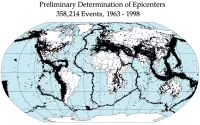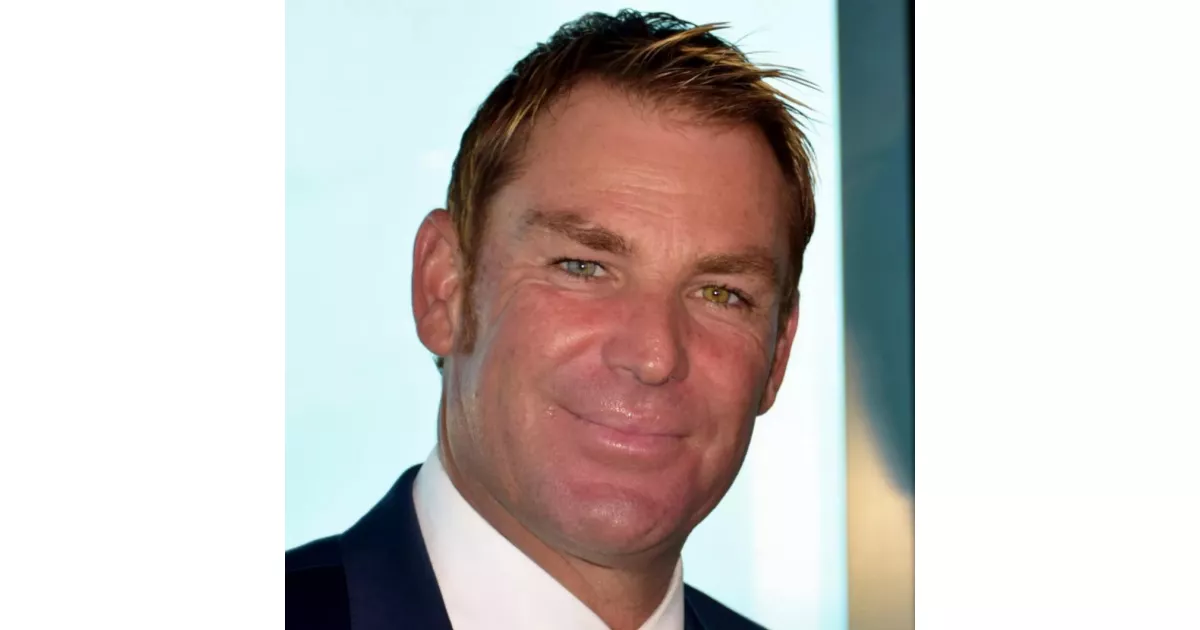Shane Warne, an Australian cricketer from 1992-2007, is considered one of the greatest of all time. A right-arm leg spin bowler and lower-order batsman, he played for Victoria, Hampshire, Melbourne Stars, and Australia. Warne captained and coached the Rajasthan Royals, leading them to victory in the inaugural IPL season, demonstrating his skill as well as leadership in the sport.
September 1969: Shane Warne's birth
In September 1969, Shane Keith Warne was born. He would later become an Australian international cricketer.
1977: Rise of Fast Bowling
From around 1977 until the early 1990s, the West Indies dominated cricket with a bowling attack of four fast bowlers.
1983: First Representative Cricket Honour
In the 1983-84 season, Shane Warne received his first representative honour, playing for the University of Melbourne Cricket Club in the Victorian Cricket Association's under-16 Dowling Shield competition.
1986: England wins the Ashes
In 1986, England won the Ashes series for the first time since 1986-87.
1987: Played Football for St Kilda Under-19s
During the cricket off-season in 1987, Shane Warne played five games of Australian rules football for St Kilda Football Club's under-19s team.
1987: Australia's Previous World Cup Win
In 1999, during the lead up to the Cricket World Cup, it was noted that Australia were attempting to win their first Cricket World Cup since 1987.
1988: Promotion to St Kilda Reserves and Football Career End
In 1988, Shane Warne played for St Kilda Football Club's under-19s team and was promoted to the reserves, playing one game before St Kilda delisted him, leading him to focus on cricket.
1989: Stint at Imperial Cricket Club
In 1989, Shane Warne spent six months in Bristol, playing for the Imperial Cricket Club in the Western League, taking 49 wickets at 15.22.
1990: Training at the Australian Cricket Academy
In 1990, Shane Warne trained at the Australian Cricket Academy in Adelaide but left due to disagreements with management.
February 1991: First-Class Cricket Debut
On 15 February 1991, Shane Warne made his first-class cricket debut for Victoria against Western Australia at Junction Oval in Melbourne, taking 0/61 and 1/41.
September 1991: Selection for Australia B Team
In September 1991, Shane Warne was selected for the Australia B team, touring Zimbabwe.
December 1991: Played for Australia A Against West Indies
In December 1991, upon returning to Australia, Shane Warne played for Australia A against a touring West Indian side, taking 3/14 and 4/42.
1991: Joins Accrington Cricket Club
In 1991, Shane Warne joined Accrington Cricket Club of the Lancashire League as their professional player, taking 73 wickets and scoring 329 runs.
August 1992: Match Winning Spell Against Sri Lanka
On 22 August 1992, during the tour of Sri Lanka, Shane Warne took the last three Sri Lankan wickets without conceding a run in the second innings, contributing to a 16-run Australian win.
1992: Accrington Cricket Club Decline to Re-engage Warne
In 1992, Accrington Cricket Club decided not to re-engage Shane Warne because they expected their professional to contribute as both a batsman and bowler.
1992: Shane Warne's International Career Start
In 1992, Shane Warne began his international cricket career, which would continue until 2007.
1992: Recalled for Boxing Day Test
In 1992, Shane Warne was recalled for the Second Test against the West Indies in Melbourne, a Boxing Day Test, where he took 7/52 in a match-winning performance in the second innings.
1992: Return to the Australian Cricket Academy
In 1992, Shane Warne was recalled to the Australian Cricket Academy, where he honed his leg spin abilities under Terry Jenner.
March 1993: ODI Debut
In March 1993, Shane Warne made his One Day International debut at Wellington, taking two wickets.
1993: Player of the Series vs New Zealand and Record Wickets
In 1993 when New Zealand toured Australia, Shane Warne took 18 wickets and was named Player of the Series and Warne took 72 Test wickets, a then-record for a spin bowler in a calendar year.
1993: "Ball of the Century"
In 1993, During the Ashes series, Warne bowled the "Gatting Ball", known as the "Ball of the Century", which dismissed Mike Gatting.
1993: South Africa's tour of Australia
In 1993, Shane Warne featured in South Africa's tour of Australia.
March 1994: Australia's return tour of South Africa
Shane Warne featured in Australia's return tour in March 1994.
1994: Accepting money from a bookmaker
In 1994, Shane Warne and Mark Waugh accepted money from a bookmaker for providing information about pitch and weather conditions during a 1994 ODI tour of Sri Lanka, leading to a later fine by the Australian Cricket Board.
1994: Career-Best Figures and Test Hat-Trick
In 1994, during the Ashes series in Australia, Shane Warne took a career-best 8/71 in the first Test and his first and only Test hat-trick in the Second Test.
1995: West Indies Tour
In 1995, Shane Warne toured the West Indies, taking 15 wickets in four Tests, and Australia defeated the West Indies in a Test series for the first time in almost 20 years.
1995: Saleem Malik Bribery Allegation
In early 1995, it emerged that during the tour of Pakistan in October 1994, Pakistani captain Saleem Malik allegedly offered Shane Warne and Tim May US$200,000 each to throw the First Test.
1996: 1996 Cricket World Cup
In 1996, Shane Warne was a key member of Australia's squad for the Cricket World Cup, taking 12 wickets, including 4/36 in the semi-final against the West Indies. Australia lost the final against Sri Lanka.
1996: Home Series Against West Indies
In the southern summer of 1996–97, Shane Warne took 22 wickets in the five-Test series against the touring West Indies, which Australia won 3–2. In the One Day series, Warne collected his only ODI five-for, against the West Indies at the Sydney Cricket Ground, cleaning up the middle-order and tail to finish with 5/33.
1997: Wickets in New Zealand and South Africa series, Media Criticisms
During the Australian summer of 1997–98, Shane Warne took 19 wickets in the three-Test series against New Zealand in Australia. He also took 20 wickets in three Tests against South Africa, including his 300th Test wicket, becoming the second Australian after Dennis Lillee to reach this milestone. In late 1997, Warne faced media criticism for his weight, but was also recognized as one of Australia's three most influential cricketers.
1997: Wisden Leading Cricketer in the World
In 1997, Shane Warne was named the Wisden Leading Cricketer in the World.
1997: Australian tour of South Africa and the Ashes series in England
In early 1997, Shane Warne took 11 wickets in Australia's three-Test tour of South Africa, which Australia won 2–1. During the northern summer of 1997, Warne played in the Ashes series in England, performing well in the Third Test at Old Trafford with nine wickets and claiming seven wickets in the Fifth Test at Trent Bridge as Australia secured the Ashes. Warne finished the series with 24 wickets at an average of 24.04.
December 1998: Announcement of Fine for Bookmaker Information
In December 1998, the Australian Cricket Board announced that three years earlier, in 1994, Warne and Mark Waugh were fined for accepting money from a bookmaker for providing information about pitch and weather conditions during a 1994 ODI tour of Sri Lanka. This became known as the 'John the bookmaker' controversy.
1998: Appointment as Vice-Captain
In 1998, after Mark Taylor's retirement, Steve Waugh was appointed as the Australian captain, and Shane Warne was promoted to vice-captain.
1998: Tour of India and Surpassing Lance Gibbs' Record
In early 1998, Shane Warne toured India with the Australian team. Due to disliking Indian food, he had tinned spaghetti and baked beans flown in from Australia. With key pace bowlers injured, Warne bowled more overs, taking 10 wickets but conceding 54 runs each. His dismissal of Rahul Dravid in the final Test at Bangalore marked him surpassing Lance Gibbs' tally of 309 wickets, making Warne the most successful spin bowler in Test Cricket. Despite this, Australia lost the series.
1998: Shoulder Reconstruction Surgery
In the later part of 1998, Shane Warne did not participate in international cricket due to requiring shoulder reconstruction surgery.
January 1999: Return to International Cricket in Fifth Ashes Test
In January 1999, Shane Warne returned to international cricket in the fifth Test of the Ashes series in Australia after recovering from injury. He played alongside Stuart MacGill at the Sydney Cricket Ground, where MacGill took twelve wickets and Warne took two.
1999: Marriage to Simone Callahan
From 1999 to 2005, Warne was married to Simone Callahan, with whom he had three children.
1999: 1999 Cricket World Cup performance
In 1999, Shane Warne participated in the Cricket World Cup held in the United Kingdom. Before the tournament, the ICC fined Warne and gave him a suspended ban for comments about Arjuna Ranatunga. He took 12 wickets in the group and Super Six phases. Warne played a key role in the semi-final against South Africa, taking 4/29 and being named man of the match. In the final against Pakistan, Warne took 4/33 and was again named the man of the match, contributing to Australia's victory. Warne finished the World Cup with 20 wickets, tying for the most wickets in the tournament.
1999: Warne Captains Victoria
In 1999-00 season, Shane Warne captained Victoria.
1999: Struggles Against the West Indies and Dropping From Team
In early 1999, Shane Warne struggled in the series against the West Indies, leading to calls for his removal from the team. For the final Test, he was replaced by Colin Miller, which strained his relationship with Steve Waugh. Warne's form recovered in the One Day International series against the West Indies, where he took 13 wickets.
1999: Tour of Sri Lanka and Zimbabwe
Later in 1999, Shane Warne was retained as Australia's vice-captain for the tour of Sri Lanka, where he took eight wickets across three Tests, as Australia were defeated 1–0. The Australians then toured Zimbabwe, where Warne took six wickets, as Australia won the only Test.
March 2000: Leading Wicket-Taker in New Zealand tour
In March 2000, Shane Warne took 15 wickets in Australia's tour of New Zealand, contributing to Australia winning the series 3–0. In the first Test at Eden Park, Auckland, Warne surpassed Dennis Lillee's 355 wickets to become Australia's leading-ever wicket-taker.
August 2000: Removal as Vice-Captain
In August 2000, the ACB removed Shane Warne as Australia's vice-captain, citing his history of off-field indiscretions. This decision was contrary to the wishes of the team's selectors and captain Steve Waugh. Adam Gilchrist replaced Warne as vice-captain.
2000: Finger Injury and Selection for India Tour
During the Australian summer of 2000–01, Shane Warne missed games with a finger injury, he battled Stuart MacGill and Colin Miller to be selected for the tour of India.
2000: Joined Hampshire, Awarded ODI Player of the Year
In 2000, Shane Warne joined English county side Hampshire for the northern summer. During the county season, reports of Warne sending lewd SMS messages to an English nurse emerged. In 2000, the ACB awarded Warne the Men's ODI Player of the Year at the Allan Border Medal ceremony.
2000: Signed with Hampshire County Cricket Club
In 2000, Shane Warne signed a $400,000 contract to play for Hampshire County Cricket Club in England.
2000: Wisden Cricketer of the Century
In 2000, Shane Warne was chosen as one of five Wisden Cricketers of the Century.
2000: Loses Vice-Captaincy
In 2000, Warne lost the Australian vice-captaincy after sending sexual text messages to a British nurse while married to Callahan.
2001: 2001 Ashes Series Performance
During the English summer of 2001, Shane Warne played in the Ashes series, taking 31 wickets at 18.70 in the five-Test series, which Australia won 4–1. He took three five-wicket hauls and collected eight wickets in each of the First and Third Tests. In the final Test at The Oval, Warne took 11 wickets and reached his 400th career Test wicket, becoming the first Australian to reach this milestone.
2001: Home Series Against New Zealand and South Africa
In the 2001–02 Australian summer, Australia played home series against New Zealand and South Africa. Shane Warne took six wickets in three Tests against New Zealand. He was caught at mid-wicket off the bowling of Daniel Vettori for 99 runs in the third test, being one run short of a maiden Test century. He took 17 wickets in the three Tests against South Africa.
February 2002: Leading Wicket-Taker in South Africa Series, Ricky Ponting Appointed Captain
In February 2002, Shane Warne was the leading wicket-taker with 20 dismissals in the three-Test series against South Africa. Also in February 2002, Ricky Ponting replaced Steve Waugh as captain of Australia's ODI squad, seemingly ending any prospect of Warne ever being appointed captain.
March 2002: South Africa Series
In March 2002, Shane Warne was the leading wicket-taker when Australia played a three-Test series in South Africa.
October 2002: Series Against Pakistan in Neutral States
In October 2002, Australia played a three-Test series against Pakistan in Sri Lanka and the United Arab Emirates. Shane Warne took 27 wickets and was named Man of the Match in both the First and Third Tests. He was also selected as the Player of the Series.
December 2002: Shoulder Injury
In December 2002, during the 2002-03 Ashes series, Shane Warne suffered a shoulder injury in an ODI.
2002: Warne Appointed as Victoria Captain Again
In the 2002-03 season, Shane Warne was again appointed to captain Victoria.
February 2003: Doubt for the 2003 World Cup
In February 2003, Shane Warne was in doubt for the 2003 World Cup due to a shoulder injury sustained during the Ashes series.
February 2003: Drug Test and Ban
In February 2003, Shane Warne was sent home from the World Cup in Africa after a drug test returned a positive result for a banned diuretic. Warne stated that he took only one "fluid tablet", the prescription drug Moduretic, given to him by his mother to improve his appearance. The ACB found him guilty and imposed a one-year ban from organized cricket.
2003: Commentator and Consultancy Role
During his suspension in 2003, Shane Warne worked as a television commentator for the Nine Network and consulted for the St Kilda Football Club.
2003: Ban and ODI Retirement
In 2003, after being banned from cricket, Shane Warne considered reconsidering his decision to retire from ODIs after the 2003 World Cup. He was allowed to play in charity matches, which was criticised by the World Anti-Doping Agency (WADA).
February 2004: Return to Competitive Cricket
In February 2004, Shane Warne returned to competitive cricket following his ban. In March, he became the second cricketer to take 500 Test wickets during the series against Sri Lanka. Warne was named player of the series.
March 2004: Return to Test Cricket
Shane Warne did not play another Test for Australia until March 2004 after suffering a shoulder injury in December 2002.
October 2004: Record for Most Test Wickets
On 15 October 2004, Shane Warne broke the record for most career wickets in Test cricket during the second Test against India at Chennai. His dismissal of Irfan Pathan marked his 533rd wicket, surpassing Muttiah Muralidaran's previous record. Australia won the series 2–1, their first series win in India since 1969. Warne's performance in India was an improvement on his previous performances.
2004: Return to Hampshire as Captain
In 2004, Shane Warne returned to Hampshire County Cricket Club as the captain.
2004: Series against New Zealand and Pakistan
In 2004, Shane Warne took 11 wickets at 23.27 against New Zealand in a two-Test series, which Australia won 2-0. Later in 2004, he took 14 wickets at 28.71 against Pakistan, contributing to a 3-0 series sweep for Australia.
2004: Included in Richie Benaud's Greatest XI
In 2004, Shane Warne was included in Richie Benaud's Greatest XI, and was chosen as the best spin bowler of all time.
2004: Wisden Leading Cricketer in the World
In 2004, Shane Warne was named the Wisden Leading Cricketer in the World by Wisden.
2004: Aid for Tsunami Victims
In 2004, Warne joined Muttiah Muralidaran in humanitarian efforts to help Sri Lankans affected by the 2004 Indian Ocean earthquake and tsunami. His foundation donated AU$20,000 to rebuild Galle International Stadium.
2004: Shane Warne Foundation Launch
In 2004, Warne launched the Shane Warne Foundation to assist seriously ill and underprivileged children.
January 2005: World Cricket Tsunami Appeal
In January 2005, Warne was named in the World XI squad during the World Cricket Tsunami Appeal tournament, held in Melbourne, to raise funds for post-tsunami relief efforts.
July 2005: Departure from Nine Network
On July 13, 2005, Nine Network announced it would not renew Warne's commentating contract due to incidents in his private life.
August 2005: 600th Test Wicket
On August 11, 2005, during the Third Ashes Test at Old Trafford, Warne became the first bowler in cricket history to reach 600 Test wickets. In the same test in August 2005, Warne scored 90 first innings runs, helping Australia avoid the follow-on and draw the match.
2005: Australian Home Summer
During the 2005-06 Australian home summer, Warne performed well against the touring World XI, West Indies, and South African teams. In 2005, he took six wickets in the only Test against the World XI, 16 wickets across three Tests against the West Indies, and led the Australian wicket-takers with 14 wickets against South Africa.
2005: Marriage to Simone Callahan ends
From 1999 to 2005, Warne was married to Simone Callahan, with whom he had three children, Summer, Jackson and Brooke. In 2005, Warne and Callahan divorced.
2005: BBC Overseas Sports Personality of the Year
In 2005, Shane Warne was named the BBC Overseas Sports Personality of the Year.
2005: ICC World Test Team of the Year & Wicket Record
In 2005, Warne was named in the ICC World Test Team of the Year XI for his performances. Also, in 2005, he broke the record for the number of wickets in a calendar year, taking 96 wickets.
April 2006: South Africa Tour
In March-April 2006, Warne played a three Test series in South Africa. In April 2006, Warne achieved series-best figures of 6/86 in Durban, helping Australia win by 112 runs, and was named Man of the Match.
December 2006: Retirement Announcement and 700th Test Wicket
On December 21, 2006, Warne announced his retirement at the end of the 2006-07 Ashes series. On December 26, 2006, he took his 700th Test wicket, bowling Andrew Strauss at the Melbourne Cricket Ground, marking the first time a player had reached 700 Test wickets. He finished that day with 5/39.
2006: Recognition and Awards
For his performances in 2006, Warne was named in the World Test XI by the ICC and ESPNcricinfo. In 2006, Cricket Australia awarded Warne the Men's Test Player of the Year at the Allan Border Medal ceremony.
2006: Ashes Series
In the 2006-07 Ashes series, during 2006, Warne initially had an indifferent Test performance in Brisbane and a poor first innings in Adelaide. However, his second-innings performance, including bowling Kevin Pietersen, triggered England's collapse and Australia's win. Warne also bowled well in the third Test's second innings, taking the final wicket of Monty Panesar as Australia regained the Ashes.
April 2007: Reported Reunion with Simone Callahan
In April 2007, Warne and Callahan were reported to be reuniting two years after their divorce.
2007: Kath & Kim and A Question of Sport Appearances
In 2007, Shane Warne made a cameo appearance on the Australian sitcom Kath & Kim and appeared on the BBC Television panel game A Question of Sport.
2007: Warne's Last Season with Hampshire
In 2007, Shane Warne played his last season with Hampshire, concluding his time with the team that began in 2004.
2007: End of Shane Warne's International Career
In 2007, Shane Warne's international cricket career concluded, marking the end of his time playing for Australia.
January 2008: Agreement with 888poker
In January 2008, Warne signed a two-year agreement with 888poker to represent them at international poker events.
2008: Signed by Rajasthan Royals
In 2008, After retiring from international cricket, Warne was signed as the captain of Rajasthan Royals in the Indian Premier League (IPL) for US$450,000. He led the Royals to victory in the first season.
2008: Rejoining Nine Network
In 2008, Warne rejoined Nine Network and continued as a member of its commentary team.
2009: Honorary Life Membership of Marylebone Cricket Club
In 2009, Shane Warne was awarded honorary life membership of Marylebone Cricket Club.
2009: Signing with Sky Sports
In 2009, Warne was signed by Sky Sports.
November 2010: Warnie Chat Show Debut
In November 2010, Nine Network debuted a chat show titled "Warnie", hosted by Warne, with James Packer as the first guest.
November 2011: Melbourne Stars
In November 2011, Warne was signed as a player for Melbourne Stars in Australia's inaugural Big Bash League (BBL).
December 2011: Statue Unveiled at Melbourne Cricket Ground
On 22 December 2011, a statue honouring Shane Warne was unveiled outside the Melbourne Cricket Ground. The bronze statue, sculpted by Louis Laumen, depicts Warne's bowling action.
2011: Final Season with Rajasthan Royals
In 2011, Warne continued as captain of the Rajasthan Royals. The 2011 season was his last with the franchise.
2011: Engagement Announced
In late 2011, Hurley and Warne announced they were engaged, marking a significant event in their relationship.
2012: Shane Warne Stand and Cricket Hall of Fame Induction
In 2012, a grandstand at the Rose Bowl was named the Shane Warne Stand, and he was inducted into the Cricket Hall of Fame by Cricket Australia.
July 2013: Retirement from all formats of cricket
In July 2013, Warne officially retired from all formats of cricket, confirming he would no longer captain Melbourne Stars in the BBL.
December 2013: Engagement Cancelled
In December 2013, Hurley and Warne cancelled their engagement.
2013: Inducted into ICC Cricket Hall of Fame
In 2013, Shane Warne was inducted into the ICC Cricket Hall of Fame.
July 2014: Captain of Rest of the World
In July 2014, Warne captained the Rest of the World side in the Bicentenary Celebration match at Lord's.
2014: Foundation financials
In 2014, The Shane Warne Foundation raised $465,000 but spent $550,000.
January 2015: End of 888poker Agreement
In January 2015, Warne's sponsorship agreement with 888poker ended.
2017: Closure of Shane Warne Foundation
In 2017, The Shane Warne Foundation closed after running at a financial loss for four of the five previous years.
2017: Named in Australia's Best Ashes XI
In a 2017 fan poll conducted by the Cricketers' Almanack, Shane Warne was named in Australia's best Ashes XI of the previous 40 years.
February 2018: Rajasthan Royals Mentor
In February 2018, Rajasthan Royals appointed Warne as their team mentor for the IPL 2018.
2018: Hole in One at Augusta
In 2018, Warne hit a hole in one on the 16th hole at Augusta National Golf Club, showcasing his skills as an amateur golfer.
2018: Signing with Fox Cricket
In 2018, Warne was signed by Fox Cricket. Nine lost broadcasting TV rights.
August 2021: Warne contracted COVID-19
In August 2021, Shane Warne contracted COVID-19 and was placed on a ventilator as a precaution. He described experiencing a headache and shivers but stated Australians would need to learn to live with the virus.
2021: Alfred Dunhill Links Championship
In 2021, Warne placed second in the Alfred Dunhill Links Championship pro-am section.
March 2022: Shane Warne's death
In March 2022, Shane Warne, the Australian international cricketer, passed away.
March 2022: Warne's Private Funeral
On 20 March 2022, Shane Warne's private funeral was held in Melbourne at Moorabbin Oval, attended by his family, former teammates, and led by his parents and children. On 30 March, a state memorial event was held at the Melbourne Cricket Ground.
March 2022: Warne's State Memorial Service
On 30 March 2022, Shane Warne's state memorial service was held at the Melbourne Cricket Ground. The service cost $1.6 million and was attended by approximately 55,000 people. It was broadcast on multiple channels and watched by over 1.5 million Australians.
March 2022: Warne Died of Heart Attack
On 4 March 2022, Shane Warne died of a heart attack at the age of 52 while on holiday in Ko Samui, Thailand. The initial autopsy indicated the death was due to natural causes.
June 2022: Warne Posthumously Appointed Officer of the Order of Australia
In June 2022, Shane Warne was posthumously appointed as an Officer of the Order of Australia (AO) for his contributions to cricket and philanthropy.
September 2022: Warnie Biopic Announced
In September 2022, Australia's Nine Network began developing Warnie, a two-part biopic about Shane Warne's life, drawing criticism from friends and family.
June 2023: Warnie Biopic Premieres
In June 2023, the first part of the Warnie miniseries premiered on Nine Network, starring Alex Williams, receiving mostly negative reviews.
November 2024: Shane Warne Legacy Monopoly Edition Announced
In November 2024, a partnership between Hasbro, Monopoly, and the Shane Warne Legacy was announced, unveiling the largest-ever Monopoly board. The Shane Warne Legacy Monopoly Limited Edition became available on the Shane Warne Legacy website.
March 2025: Reports Emerge of Drug Cover-Up
In March 2025, reports surfaced alleging that a police officer was instructed to remove a bottle of Kamagra pills found near Warne's body in March 2022. These pills, used for erectile dysfunction, were supposedly omitted from the police report due to pressure from senior officials.
Mentioned in this timeline
India officially the Republic of India is a South Asian...
New Zealand is an island country in the southwestern Pacific...
Africa is the second-largest and second-most populous continent comprising of...

An earthquake is the shaking of the Earth's surface caused...

News encompasses information about current events disseminated through various media...

Football is a family of team sports primarily involving kicking...
Trending

19 minutes ago Priyanka Chopra stuns in Dior and Gaurav Gupta at 'The Bluff' premiere.
19 minutes ago Puerto Vallarta: Vehicle Fires and Roadblocks Disrupt Sunday Morning

20 minutes ago Sundar Pichai envisions AI's transformative potential, focusing on India and global connectivity.

20 minutes ago Rhys Hoskins Reportedly Set to Join Cleveland Guardians After Phillies Departure.

20 minutes ago Tate McRae stuns in Victoria's Secret dress, linked to Jack Hughes.

20 minutes ago Norah O'Donnell highlights unsung heroines in "We the Women" and celebrates Women's History.
Popular

Jesse Jackson is an American civil rights activist politician and...

Barack Obama the th U S President - was the...

Bernie Sanders is a prominent American politician currently serving as...

Ken Paxton is an American politician and lawyer serving as...

Michael Joseph Jackson the King of Pop was a highly...
WWE Raw a professional wrestling television program by WWE airs...
